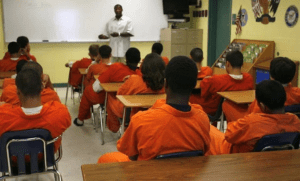A. County governments must closely monitor juvenile detention employee behavior for several reasons, including:
1. Protecting the welfare of juvenile detainees: Juvenile detention employees are responsible for the care and custody of young people who have been accused or convicted of crimes. These employees have a duty to ensure that the young people in their care are safe, healthy, and treated with respect. Monitoring employee behavior helps to ensure that the welfare of the juveniles is protected.
2. Preventing abuse and neglect: Unfortunately, instances of abuse and neglect have been reported in juvenile detention facilities. By closely monitoring employee behavior, county governments can detect and address any instances of abuse or neglect before they become systemic problems.
3. Avoiding liability: County governments can be held liable for the actions of their employees. If an employee engages in abusive or neglectful behavior towards a juvenile detainee, the county government can be sued for damages. By closely monitoring employee behavior, county governments can take action to prevent such incidents from occurring, thereby minimizing their exposure to liability.
4. Maintaining public trust: The public expects county governments to operate juvenile detention facilities in a responsible and ethical manner. By monitoring employee behavior, county governments can demonstrate their commitment to providing safe and humane conditions for juvenile detainees, which helps to maintain public trust and confidence in the justice system.


B. Good training for juvenile detention employees is crucial for several reasons, including:
1. Ensuring the safety and well-being of juvenile detainees: Juvenile detention employees are responsible for the care and custody of young people who have been accused or convicted of crimes. Good training can help employees understand how to provide a safe and secure environment for juveniles, while also ensuring that their physical and emotional needs are met.
2. Preventing abuse and neglect: Juvenile detention employees who are properly trained are more likely to recognize signs of abuse and neglect and take appropriate action. They are also better equipped to manage challenging behavior and prevent conflicts between detainees.
3. Avoiding liability: County governments can be held liable for the actions of their employees. If an employee engages in abusive or neglectful behavior towards a juvenile detainee, the county government can be sued for damages. By closely monitoring employee behavior, county governments can take action to prevent such incidents from occurring, thereby minimizing their exposure to liability.
4. Reducing liability: County governments can be held liable for the actions of their employees. Good training can help prevent incidents of abuse and neglect, thereby minimizing the county’s exposure to liability.
5. Maintaining public trust: The public expects county governments to operate juvenile detention facilities in a responsible and ethical manner. Good training demonstrates a commitment to providing safe and humane conditions for juvenile detainees, which helps to maintain public trust and confidence in the justice system.


C. Effective training companies can be valuable assets to juvenile detention facilities for several reasons, including:
1. Providing specialized expertise: Training companies that specialize in juvenile justice can offer expertise in best practices and current trends in the field. They can provide insights into the unique challenges of working with juvenile detainees and offer strategies for managing difficult situations.
2. Developing customized training programs: Effective training companies can develop customized training programs that meet the specific needs of individual juvenile detention facilities. They can work with facility administrators to identify areas where employees may need additional training and develop programs to address those needs.
3. Ensuring compliance with regulations: Juvenile detention facilities are subject to a wide range of regulations and standards. Effective training companies can help ensure that employees are trained in compliance with these regulations, reducing the risk of liability and improving overall facility performance.
4. Improving employee performance: Effective training programs can improve employee performance by providing the skills and knowledge necessary to perform their jobs effectively. This can lead to higher job satisfaction and motivation, which can translate into better outcomes for juvenile detainees.
5. Demonstrating a commitment to quality: Working with an effective training company can demonstrate a commitment to quality and professionalism. This can help to build public trust and confidence in the juvenile justice system, which is essential for maintaining positive relationships with stakeholders and the broader community.


Another Blog Post by Direct Care Training & Resource Center, Inc. Photos used are designed to complement the written content. They do not imply a relationship with or endorsement by any individual nor entity and may belong to their respective copyright holders.
| Follow us in the Social Stratosphere… | ||||
|
|





